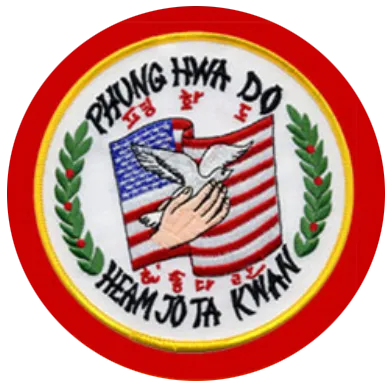student section
master bills karate

student resources
Toe Chang Rules
"Toe Chang" is a Korean term. In the context of martial arts, it often refers to the training or practice area.
Arrive at Toe Chang (Karate School) and change into training attire promptly. Utilize any available time before class for practice.
Show respect by bowing to the flags when entering or leaving the training area. Extend the same courtesy to black belts present. Thank them before departing.
If late, wait for acknowledgment from the instructor before entering. Seek permission to join the class if necessary. Notify in advance if you expect to be late in the future.
Maintain discipline in the Toe Chang. Avoid idle chatter, laughter, or loitering.
Prohibit jewelry, gum, cigarettes, or profanity in the Toe Chang.
Do not enter the office area without prior permission.
During another class's session, refrain from distracting activities. Focus on silent practice of basic blocks, punches, kicks, or forms.
Obey instructions from seniors promptly. Address them with "sir" or "ma'am."
Ensure uniforms meet federation standards.
Seek permission from the instructor before leaving the training area during class.
Sparring must be supervised by the instructor and requires shin pads and a protective cup (for men).
Gup testing has a minimum two-month waiting period between attempts, although exceptions may occur at the instructor's discretion. Testing is optional; requesting it may delay your next scheduled testing.
To be considered for promotion, attend a minimum of two classes weekly. Inform your instructor if you can't attend for more than two consecutive days.
In the presence of Master Bill, show respect by not turning your back on him unless adjusting your Toe Balk. Sit with his permission, and rise when he does.
Association and Club Emblem
All students must have the patches on their uniforms. The purpose of this is to distinguish our school from others at tournaments. It is common practice for schools to have patches or printing which differentiates them from others.
Success Tips For Martial Arts
Important Factors to Develop Good Forms
Good focus
Good balance during motion concentrated in the abdomen
Proper movement of the body during motion
Proper expansion and contraction of the body during each movement
Accuracy of each movement
Proper speed of the technique
Proper breathing during the movement
Proper control of power
Proper adjustments for distance in body positions
Proper conditioning of both hand and feet
Proper height of stances
Tips on Phung Hwa Do Heam Jo Ta Kwan
Always come early for class.
Speak to everybody when entering and bow to all black belts.
Always keep your balk clean and tied properly.
After warm ups, work on basics and forms.
Make sure you have all your sparring equipment with you.
Never wash dee(belt).
Higher ranks will help lower ranks.
Phung Hwa Do Terminology
Anatomy
Arm : Pahl
Ball of
Foot : Ahp Bahl Gum Chi
Chin : Tuck
Elbow: Pahl Koop
Fist : Chu Mok
Foot : Bahl
Forehead : I Ma
Groin : Hand
Hand : Soo
Heel : Dwi Gum ChiIn
Step : Bahl Doong
Knee : Moo Roope
Leg : Da Ri
Low Abdomen : Dan Jun
Neck : Mok
Philtrum : In Choong
Solar plexus : Myung Chi
Waist : Hur Ri
Wrist : Pahl Mok
Numbers
One: Hana
Two: Tul
Three: Set
Four: Net
Five: Tasot
Six: Yasot
Seven: Ilgop
Eight: Yodol
Nine: Ahop
Ten: Yol
First: Il
Second: E
Third: Sam
Fourth: Sa
Fifth: Oh
Sixth: Yuk
Seventh: Chil
Eighth: Pal
Ninth: Ku
Tenth: Sip
General
Grandmaster: Kwan Chang Nim
Instructor: Sah Bum Nim
Forms: HyungYell: Ki Hap
Sparring: Dae Ryun
National Flag: Kukgi
Belt: Dee
Self defense: Ho Sin Sool
Uniform: Do Bohk
Beginner: Cho Bo Ja
Studio: Dojang
Testing: Shim Sa
Commands in Class
Cha Rvut (attention)
Kukgi Baa Rye (salute the flag)
Ba Ro (return)
Ahn Jo (sitting position)
Muk Yum (meditation)
Kwan Chang Nim E Kyung Yet (bow to Grandmaster)
Choon Bee (ready stance)
Shio (rest)
Shi Jak (begin)
Tora (turn)
Ku Ryung E Mat Cho So (by the count)
Movements
Block: Mahk Ki
Low X Block: Ssang Soo Ha Dan Mahk Ki
Inside Outside Block: Ahneso Phaku Ro Mahk Ki
Knife Hand Block: Soo Do Mahk Ki
High Block: Sang Dan Mahk Ki
Low Block: Ha Dan Mahk Ki
Two Hand Defense: Chun Kul Ssang Soo
Breaking: Kyuck Pa
Attack or Punch: Choong Dan Kong Kyuk
Center Punch: Choong Dan Kong Kyuk
Back Fist: Kap Kwon
Fore Fist: Jang Kwon
Knife Hand: Soo Do Mahk Ki
Elbow Strike: Pahl Koop Kong Kyuk
Spear Hand: Kwan Soo Kong Kyuk
Kick: Cha Ki
Axe Kick: Cchik Ki
Front Kick: Ahp Cha Ki
Back Kick: Dwi Cha Ki
Hook Kick: Yup Hu Ryo Cha Ki
Inside Outside Crescent Kick: Ahneso Phaku Ro Cha Ki
Outside Inside Crescent Kick: Phakeso Ahnu Ro Cha Ki
Roundhouse: Tollyo Cha Ki
Side Kick: Yup Cha Ki
Spinning back Kick: Swi Tollyo Cha Ki
Self Defense: Ho Sin Sul
One Step Sparring: Il Soo Sik Dae Ryun
Directions
Front: Ahp
Back: Dwi
Middle Part: Choong Dan
Round: Tollyo
Side: Yup
Low part: Ha Dan
Left Side: When Jok
High part: Sang Dan
Right Side: Oren Jok
Stance
Attention: Cha Ryut
Front Stance: Choon Kul Ja Seh
Fighting Stance: Hu Kul Ja She
Ready Stance: Choon Bee Ja She
Horse riding Stance: Kee Ma Ja She
Side Stance: Sa Ko Rip Ja She
Cross-Legged Stance: Kyo Cha Rip Ja She
Copyright © 2023 Master Bills Karate | All Rights Reserved
Privacy Policy | Terms & Conditions
Powered by BlazingInterwebs.io